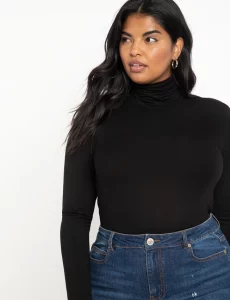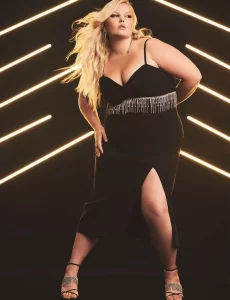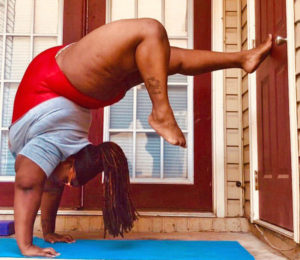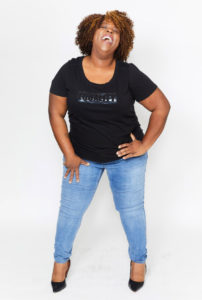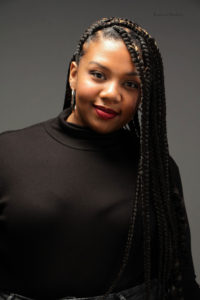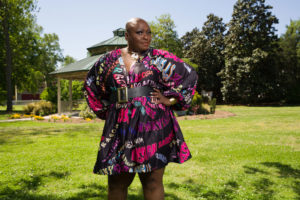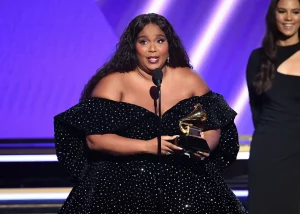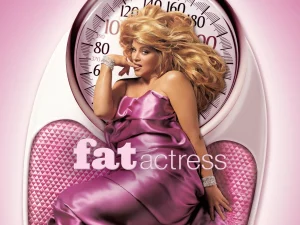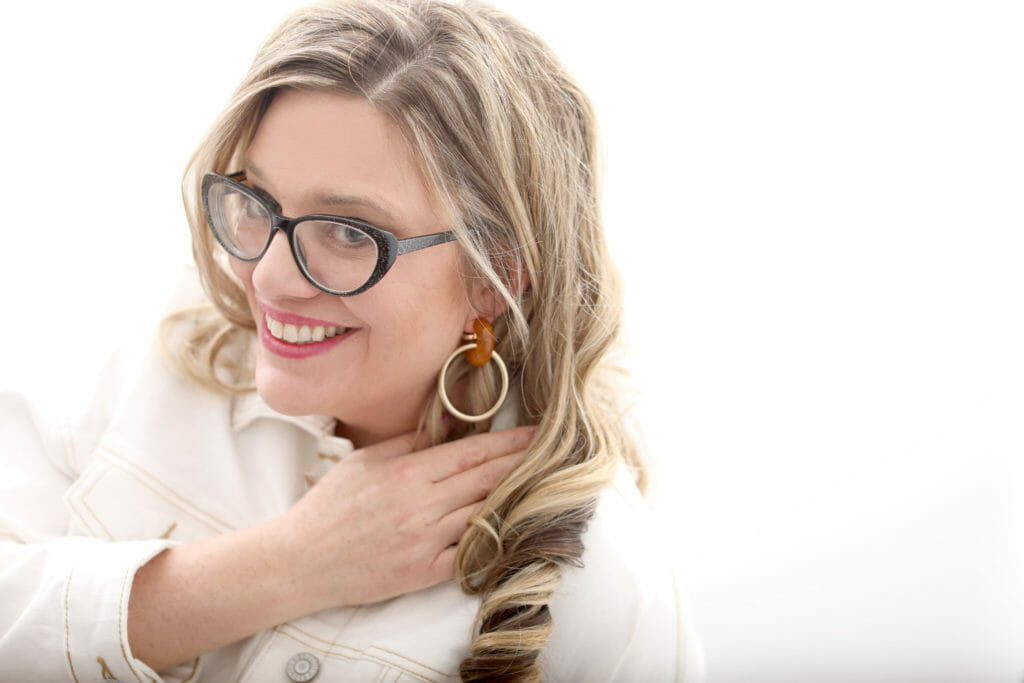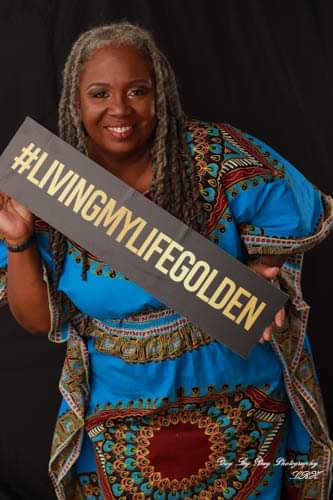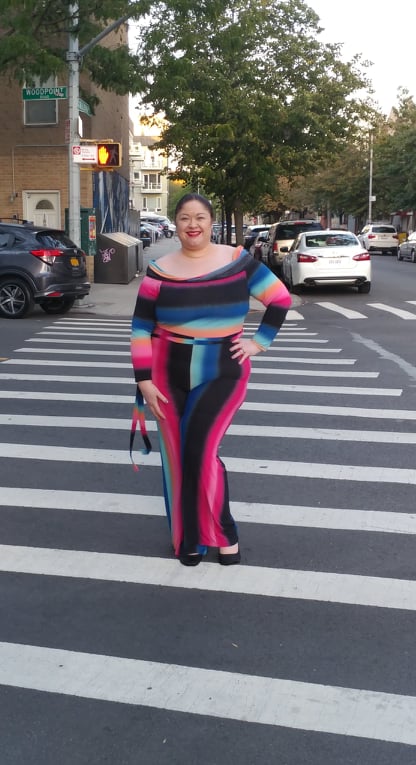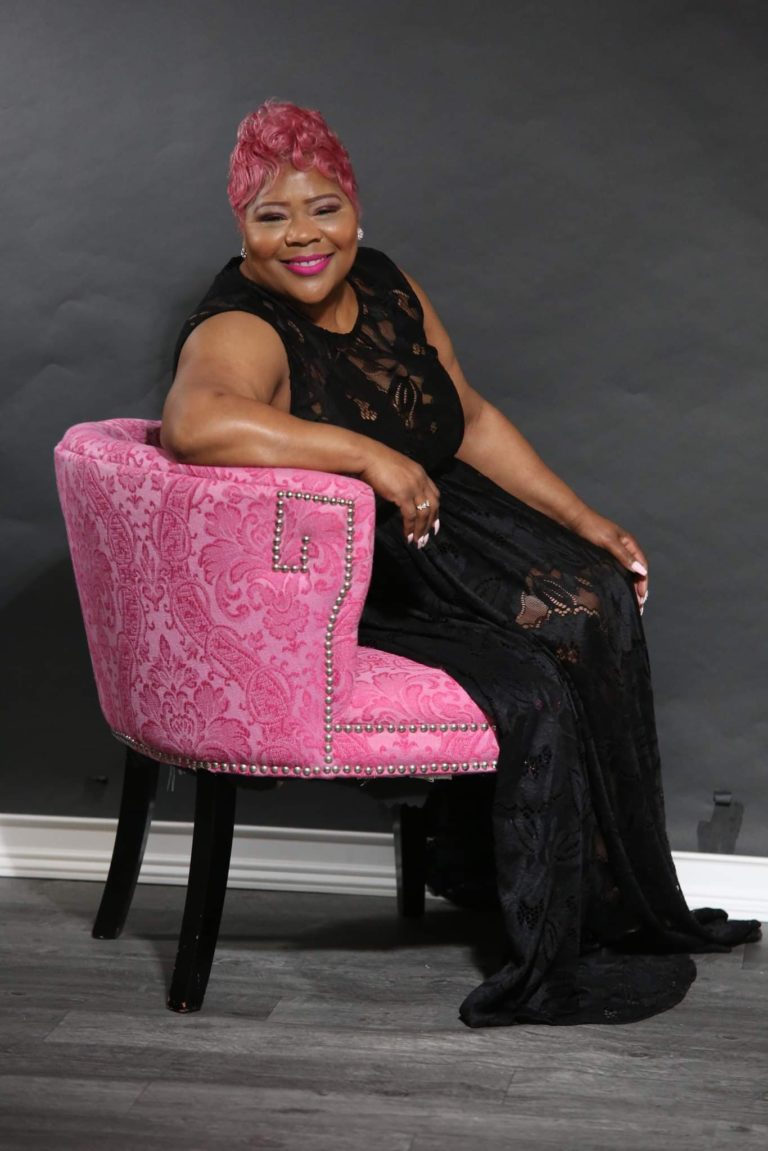I grew up in the 80s. I remember three things: MTV, the first time I got fat and First Lady Nancy Reagan magically appearing on commercials in what seemed like every half hour telling the world to “Just Say No” to the war on drugs.
I wish we could reinvent that campaign as “Just Say Yes to Everyone Accepting Their Size.” If there’s one thing I’ve learned as the editor of a plus-size magazine, it’s that weight talks are harmful. Simply put, they hurt.
So I’ve taken a stand. I don’t, won’t and will never do “weight talks” with anyone.
Really, it came out of the clear blue. My childhood best friend has been on medication that caused her to gain weight. For the first time in her life, she has felt the pain that I’ve felt since I was 8-years-old.
But really, how could I expect her to understand? She’s been tiny her whole life. I was born in a bigger body. For that, I resented her. I always looked at her as “the pretty one.”
“What do you weigh now?” she innocently asked. “I’m back down to 145.”
I could feel the anger arising inside me. Like a volcano, I was ready to blow.
“Doesn’t she understand how offensive it is to ask your fat friend about weight?” I thought. And then I remembered everything I’ve learned in my journey as the founder of Curvicality. Of course she doesn’t understand. Society is screwed up. We live in a deeply ingrained diet culture. The one talk I dread is the talk she is most proud of.
To be honest, it took me years to get over my resentment. Growing up, she was a tiny little thing with an hourglass shape. I, on the other hand, was chubby with an apple body. I never felt like I fit in.
Every time I would lose weight, I was noticed. When I gained weight, I was the landscape in the background of her life. A blip on the radar.
When we would go out during my fat years, men would ask “who’s your friend?” I was invisible.
When the weight came off, there were two of us. I was seen.
When the weight came back on, there was a line of men waiting to talk to her at all times. I was the facilitator. Once again invisible.
Not a single day goes by when I don’t thank my lucky stars for the body-positive movement. It was only by connecting with other plus-size women that I finally began to be able to see my plus-size body as something I accept. Apple shaped and all.
I just wish I could teach the world why diet talk is harmful. It’s a matter of kindness and consideration. It’s the same way as if you just had a baby, you don’t tell your friend who is struggling with infertility “look me, all happy with my new baby.” Why? That would hurt her.
That’s how I felt when my friend called me to have the weight talk. It’s not polite to comment on other people’s bodies at all. If you think someone might not enjoy a comparison, don’t make it. Plain and simple.
Before you talk to somebody, consider their feelings. Sometimes you’ll go awry, but you’ll try.
And it goes both ways. My boyfriend is skinny. No matter how hard he tries, he can rarely gain weight. He would be offended and hurt if anyone commented on his thin physique.
So just what is diet talk? It’s anything about dieting, food restriction or making changes in your body centering around gaining/losing weight. It’s the fuel that fires our diet-centric culture. And it’s toxic. You have the right to stand up and “Just Say No.”
Example: You’re at lunch with your friend. She ogles the menu and sighs, saying “Oh I wish I could get that juicy cheeseburger, but I’d better get the salad. You know, I’ve gained 15 pounds. I’ve been eating like crazy.”
This is when it’s ok to speak up. Express your desire to change the subject. Prepare what you’ll say ahead of time.
Example: While I respect your choices, I’m trying to stay away from diet talk. Would it be ok if we talked about something else?
Or, you could say something like “I’m trying to focus on body positivity. Could we focus on positive body talk that doesn’t involve diets?”
Setting boundaries can be scary, but it’s better than subjecting yourself to toxicity. Your friend will most likely understand if you phrase your comment kindly and compassionately.
Not everyone is on the same journey to body acceptance that we are, and that’s ok. The important thing is to set boundaries and put yourself in situations that build you up rather than tear you down.
If you do encounter diet talk that rocks your journey, make an effort to get your thoughts back in line. Remind yourself that it’s ok to disagree. It’s also ok to struggle. We all have rough days.
In time, you’ll find that you become more comfortable with standing up for what you believe. I told my childhood best friend the truth that she hurt me.
Her response? “I’m so sorry.”



